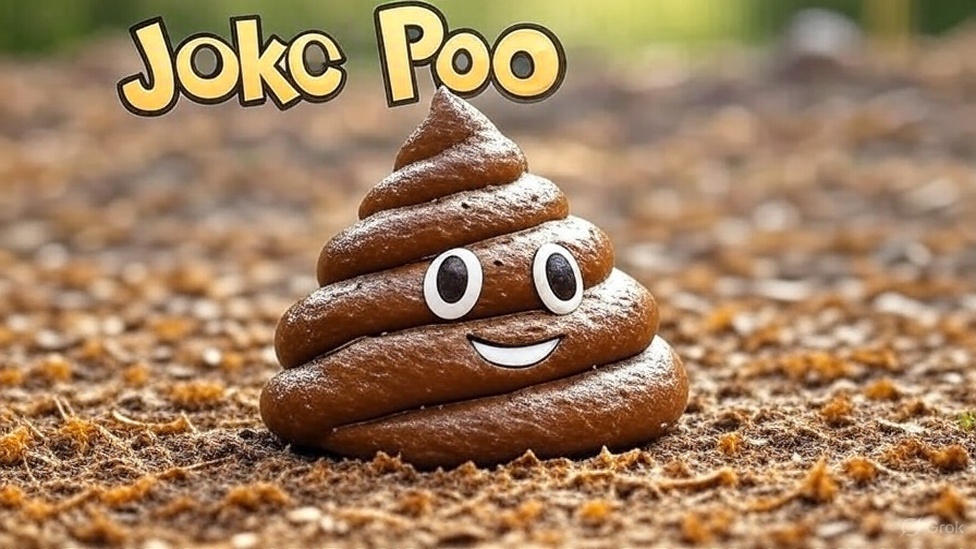When you turn 16, you get a text from Andrew.
Joke Poo: Space Debris
Original: In England, when you turn 100, you get a royal letter from the King or Queen.
When you turn 16, you get a text from Andrew.
Joke Poo:
In space, when you pass Jupiter, you get a planetary gravity assist.
When you pass Uranus, you get… debris.
Alright, let’s dissect this joke:
Core Components:
- Element 1: Longevity & Royal Recognition (Age 100 in England): The setup establishes a tradition tied to reaching a significant milestone (100 years old) and being formally acknowledged by the monarchy with a letter. This invokes themes of national pride, tradition, and the perceived prestige of receiving royal correspondence.
- Element 2: Teenage Years & Andrew (Age 16): The punchline introduces a stark contrast. The royal recognition is replaced by a text message from “Andrew,” immediately triggering a specific association.
- Element 3: The Implied Scandal: The humor hinges entirely on the implied association of “Andrew” with Prince Andrew and the scandals surrounding his relationship with Jeffrey Epstein and underage girls. The punchline doesn’t explicitly mention the scandal, but relies on the audience’s awareness of it to make the connection.
- The Subversive Contrast: The joke is funny because it juxtaposes a wholesome, respected tradition (royal letter) with a controversial figure and a deeply unsettling context (text from Andrew implying grooming). The sharp contrast creates a sense of dark humor and unexpectedness.
Interesting Tidbits and Related Facts:
- Centenarians and Royal Greetings: The tradition of royal birthday greetings in the UK started with King George V in 1917. As of 2021, there were an estimated 15,390 centenarians in the UK. The increased lifespan means the Royal Mail has to send out a lot of letters! There’s even a dedicated team that handles the personalized messages from the King.
- Prince Andrew and the Epstein Scandal: It’s difficult to state anything without opening a can of worms, however, in January 2022, Prince Andrew was stripped of his military titles and royal patronages by Queen Elizabeth II due to the ongoing legal battle and public outcry. He later settled a lawsuit with Virginia Giuffre out of court, without admitting guilt.
- The Power of the Text Message: The use of a text message as the medium is key. It feels both contemporary and impersonal, amplifying the contrast with the formality of a royal letter. Text messages also imply a sense of immediacy and personal contact, making the connection with “Andrew” feel more direct and potentially predatory.
New Humorous Creation:
Observation:
“Isn’t it funny how the Royal Family has tiers of communication? At 100, you get a handwritten letter, brimming with the King’s personal thoughts on…presumably, having existed for a century. At 16, you get a text. And I imagine somewhere in between is a strongly worded email from lawyers.”
Alternative Joke:
“In England, when you turn 100, you get a letter from the King, filled with well wishes and historical anecdotes. When you turn 18, you get a strongly worded cease and desist order from Prince Andrew’s lawyers if you even think about writing a tell-all memoir.”
Did You Know? (Amusing/Darkly Humorous):
“Did you know that after the number of letters sent from the Royals rocketed, the Royal Mail briefly considered ‘bulk sending’ them, only for officials to realize the chaos caused if those bulk messages ended up in the wrong hands – especially during the ‘Andrew’ years.”
Explanation of why this is funny (I hope!):
- The “observation” plays on the escalating nature of legal protection within the royal family.
- The alternative joke directly satirizes Prince Andrew’s legal issues and attempts to control his public image.
- The “Did You Know?” creates an imagined scenario where a bureaucratic cost-saving measure by the Royal Mail could lead to disastrous consequences, connecting it back to the Prince Andrew situation in a darkly humorous way.
By understanding the core elements and drawing on related factual tidbits, we can create new humorous content that amplifies the original joke’s impact and engages the audience in a more nuanced way.


